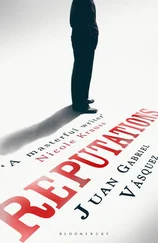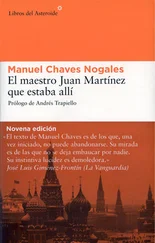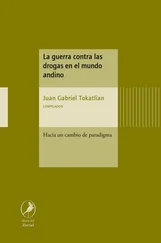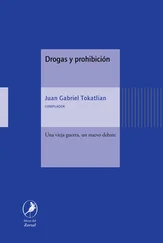Noticing I was watching her, Viviane fastened the towel around her waist like a man — she knew that few things could excite me as much as seeing her like that — and came back into the bedroom to get dressed. Our bedroom was narrow. A map of the world covered the widest wall; on the IKEA bedside table Viviane had a vase sometimes containing an iris and sometimes a sprig of chamomile. She chose a blue sports bra: she was going to have to do a lot of walking over the course of the day, up and down lots of stairs in the metro. The previous day she’d brought me a gift of an unvarnished pinewood shelf to put up on the wall, beside the closet, for my first editions; this morning, turning to tell me something, she banged her head on the shelf to which her body had not yet become accustomed. We laughed, but the impact was a hard one, and the screws crunched and a goose egg came up on Viviane’s forehead. I made her sit down on the bed, went to get some cotton balls and iodine, and improvised some modest first aid. I said good-bye to her at the door with a kiss to her forehead, and felt on my lips the heat and roughness of the grazed skin damaged by the blow.
Right afterward, repeating the whole time (as if someone might be listening) that I needed exercise, I put on a gray sweatshirt, stuffed a couple of white T-shirts in a knapsack we’d bought in a temple in Jokhang, and jogged down the five flights of stairs. My body decided on its own to take Rue Monge toward Gobelins, and I kept jogging without feeling the muscles in my legs, leaving behind the tiny apartment Viviane and I had lived in since our marriage. I was alone, even in the midst of the people who crowded the sidewalks, and I recognized the privilege of that solitude. I tried to imagine the feeling of absolute certainty, separate from the desire I felt for Viviane, and that destroyed our relationship because it was accompanied by the fear of abandonment; I thought of the feelings I’d discovered when I left my parents’ house — or my father’s, who was living alone by then — yes, that was certainty, that was absolute confidence, for dependence on someone else would no longer intimidate me and neither would the fear of looking at my reflection in the mirror one day and seeing what I saw in my father’s eyes: imbalance in the black iris, the shining cornea of men who are lost.
I didn’t stop until I no longer recognized the neighborhood around me, and even then I didn’t stop completely. I must have walked for more than half an hour, first along Port-Royal and later through Montparnasse. Then I leaned on the back wall of the Hôpital Necker — where later I would go for an MRI — and tried to weigh up my life that afternoon or plan an itinerary, to keep my head from falling into an uncontrollable disorder or to name what had just happened, with the terrible awareness we get once we’ve hurt the person we love. On the corner of Rue du Cherche-Midi, a woman with purple hair and a mink coat was sweeping up her dog’s excrement.
—
“WAIT A MINUTE,” says Viviane, laughing her head off. “I’m dizzy, I need to stop for a second.”
We’re at the entrance to Jussieu, the closest station to the apartment I don’t live in anymore. Viviane has few inherited traits, but one of them is some kind of middle-ear disorder that makes her vulnerable to the most unexpected bouts of dizziness. When she has too much to drink, the symptoms get mixed up, and sometimes the situation gets so serious that she has to sit down — on the floor of the shower, in the middle of the street — and just pray for the world to stop spinning.
“You want to know what I think?” I ask her. “I think the princess has a very refined palate. The princess can only drink Lagavulin’s, that’s the thing.”
“You talk like you know what that is,” Viviane says.
“Well, neither do you.”
“You’ve never even seen a bottle that good,” she says.
“Neither have you,” I say.
“But friends of mine have,” she says. She waits a moment and adds: “There is something you don’t know.”
“What’s that?”
“I masturbated yesterday. For the first time since you left.”
Viviane laughs. I laugh, too, an accomplice to her game.
We’ve left my father lying on his bed. The effort required to get him up the spiral stairs has not been negligible. Viviane got lost under his left arm, I was carrying his head on my shoulder like a marble bust. The smell of his metallic breath has stayed on my clothes, that mixture of whiskey, toothpaste, and betel nut. Before we left the Café de la République, my father began to hum “Février de cette année-là,” the song he chose to learn by heart a long time ago, before an interview with Maxime Le Forestier that never took place in the end. By the time we covered him with his yellowing bedspread — Viviane had instinctively shaken it out, and the lightbulb at the entrance transformed the dust into floating flour — he’d started repeating the same bit of the tune over and over again, and Viviane, taking pity on him, filled out his monotonous delivery with any old line here and there, Tu peux venir chez moi, or perhaps Les yeux pleins de brouillard . Still beside the bed, she asked me in a whisper if my mother had slept on this same mattress. I confessed that I hadn’t noticed and would never notice that sort of detail, but it always seemed normal to me that she did. Then my father grabbed my hand, squeezed it between both of his, and said:
“Come back on another day.”
And then, in a harsher tone:
“Not for your sake, though. It’s your wife, who does actually know how to carry on a conversation like friends from the old days.”
Now we’re walking down the streets we’ve walked together thousands of times, arriving from somewhere to the bed that used to be ours and no longer is. I look at the windows of the buildings on our street, and I think how the lives of others fascinate people and that perhaps somebody, at this very moment, is spying on us from behind a half-open blind, and is pleased to see us together again, to see Viviane with a spring in her step like before. And that person will not think of my confusion or my sadness, because I’m the one who chose to leave.
“I’ve passed by here so many times,” I say. “I’ve thought of coming to see you, to find out how you were.”
“And your knees shook, I imagine.” Viviane bursts out laughing. “It’s true, your cowardice is beyond redemption.”
When we get to the apartment, I notice that Viviane has not let herself go, that her life has not given way to incoherence. In the sink is just the small breadboard with traces of honey and hazelnut spread and the fuchsia-colored plastic glass from this morning’s breakfast; there are no dirty dishes piling up on the drying rack, no jackets hanging carelessly over chair backs. Les yeux pleins de brouillard, sings Viviane. I ask her to change the tune, and she, laughing, says she doesn’t remember any others and she likes that one because the mention of fog in the eyes has made her think of a recently awakened Le Forestier, his hair still a mess, rubbing sleep out of his eyes the way I used to before starting to write. I’ve almost forgotten the unmistakable signs of her contentment, the way she forgot about everyone else when she was happy. She couldn’t care less that a guffaw might make her seem rough or masculine; she couldn’t care less about her posture.
“I’ll be right back to say good-bye,” she says on her way into the bathroom. “You don’t mind, do you? I won’t be two minutes, it’s just that I’m about to burst.”
I hear her close the door. That’s not a familiar sound; the sound of water running out of the cistern, however, is familiar, as Viviane always flushes it to cover her own sounds when there’s a stranger in the house. Tonight, I am the stranger. I look around: on top of two boxes of books I haven’t had time to collect sits a new lamp, with a silver base and translucent glass; my screwdriver set is open and spread out beside a small revolving CD rack that Viviane had just picked up at a flea market and hadn’t put together yet. Everywhere I see signs of a changing life. Every object tells me that the minuscule order I belonged to no longer exists.
Читать дальше










